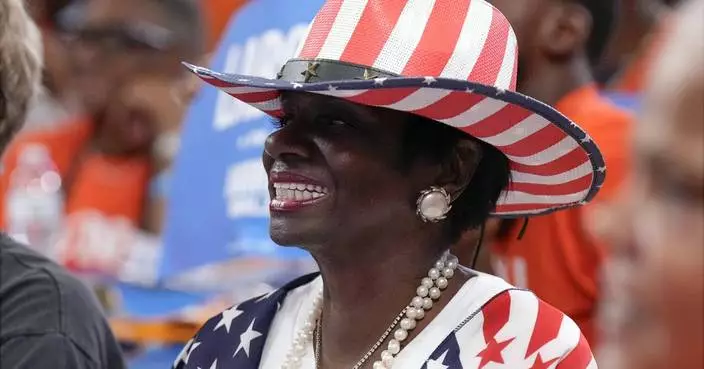WOBURN, Mass. (AP) — Two men have been sentenced for their role in an armed standoff on a busy Massachusetts highway in 2021 that lasted more than eight hours and caused traffic delays during a busy Fourth of July weekend.
Jamhal Tavon Sanders Latimer was sentenced Tuesday in Middlesex Superior Court to three to five years in prison with four years of probation. Steven Anthony Perez was sentenced to just over a year and half behind bars and four years of probation. They were convicted of multiple gun charges last month related to the standoff.
The two were part of a group called Rise of the Moors and claimed they were headed to Maine for training when a state trooper stopped to ask if they needed help, authorities said. That sparked the long standoff on Interstate 95 after some members of the group ran into the woods next to the highway.
Nearly a dozen people were arrested and state police said they recovered three AR-15 rifles, two pistols, a bolt-action rifle, a shotgun and a short-barrel rifle. The men, who were dressed in fatigues and body armor and were armed with long guns and pistols, did not have licenses to carry firearms in the state.
The Southern Poverty Law Center says the Moorish sovereign citizen movement is a collection of independent organizations and individuals that emerged in the 1990s as an offshoot of the antigovernment sovereign citizens movement. People in the movement believe individual citizens hold sovereignty over and are independent of the authority of federal and state governments. They have frequently clashed with state and federal authorities over their refusal to obey laws.
The vast majority of Moorish sovereign citizens are African American, according to the SPLC.

Steven Anthony Perez, center, listens during his sentencing hearing while standing near defense attorney Josina Raisler-Cohn, left, at Middlesex Superior Court, Tuesday, July 16, 2024, in Woburn, Mass. Perez and Jamhal Tavon Sanders Latimer, not shown, were sentenced Tuesday for their role in a 2021 armed standoff that shut down traffic on a busy highway in Massachusetts for more than eight hours. (AP Photo/Steven Senne)

Jamhal Tavon Sanders Latimer, right, speaks with defense attorney Daniel Thompson, left, during a sentencing hearing for Latimer and Steven Anthony Perez, not shown, at Middlesex Superior Court, Tuesday, July 16, 2024, in Woburn, Mass. The two men were sentenced Tuesday for their role in a 2021 armed standoff that shut down traffic on a busy highway in Massachusetts for more than eight hours. (AP Photo/Steven Senne)
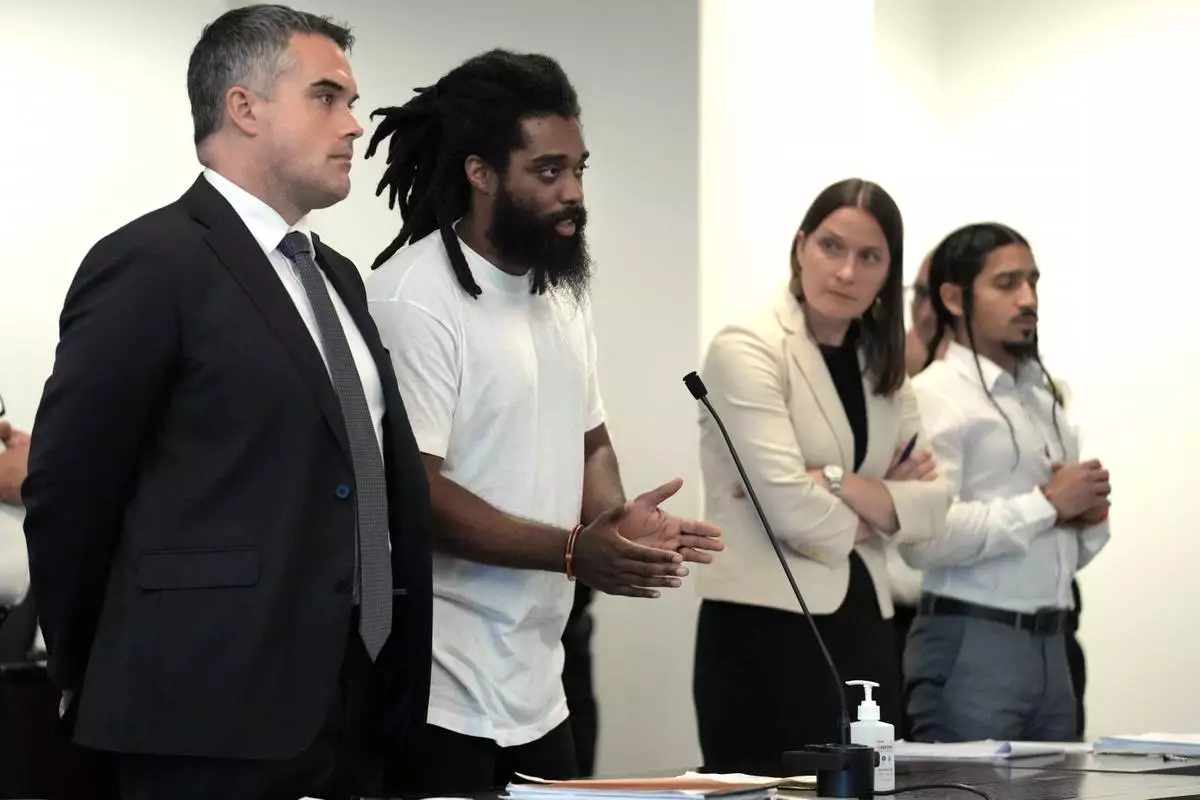
Jamhal Tavon Sanders Latimer, center left, addresses the judge while standing near defense attorney Daniel Thompson, left, defense attorney Josina Raisler-Cohn, center right, and Steven Anthony Perez, right, during a sentencing hearing for Latimer and Perez at Middlesex Superior Court, Tuesday, July 16, 2024, in Woburn, Mass. The two men were sentenced for their role in a 2021 armed standoff that shut down traffic on a busy highway in Massachusetts for more than eight hours. (AP Photo/Steven Senne)
NGĀRUAWĀHIA, New Zealand (AP) — They came in their thousands in the freezing dawn, parking cars far away and winding down rural roads on foot, children riding on their shoulders. They arrived in mourning black with crowns of ferns and kawakawa leaves, bone carvings or wedges of deep green pounamu -– New Zealand jade -– resting on their chests.
The mourners came to the North Island town of Ngāruawāhia on Thursday to pay final respects to New Zealand’s Māori king, Tūheitia Pōtatau Te Wherowhero VII, who died six days earlier, and witness the ascension to the throne of his daughter, Ngā wai hono i te po. The new queen, 27, is the second woman to become Māori monarch in a tradition dating back to 1858.
As she was escorted onto Tūrangawaewae marae -– an ancestral meeting place — where her father’s casket lay draped in feathered cloaks, cheers rang out among thousands crowded around TV screens outside and waiting along the wide, flat banks of the Waikato River to glimpse Kīngi Tūheitia’s funeral procession. After her ascension, Ngā wai hono i te po accompanied the late king in a flotilla of traditional canoes along the river as he was guided by Māori warriors to his final resting place.
The events marked the end of a weeklong tangihanga -- funeral rite -– for Kīngi Tūheitia, 69, a leader who had in recent months rallied New Zealand’s Indigenous people to unity in the face of a more racially divisive political culture than before. His daughter’s ascension represents the rise of a new generation of Māori leaders in New Zealand -– one which grew up steeped in a resurging language that had once almost died out.
Kīngi Tūheitia died last Friday after undergoing heart surgery, just days after celebrations marking his 18th anniversary on the throne. He became king after his mother’s death in 2006 and on Thursday was buried alongside her in an unmarked grave on Taupiri Maunga, a mountain of spiritual significance to his iwi, or tribe.
The Kīngitanga, or Māori royalty movement, is not a constitutional monarchy and King Charles III of Britain is New Zealand’s head of state. It has a ceremonial mandate rather than a legal one and was formed in the years after British colonization of New Zealand to unite Māori tribes in resistance to forced sales of Indigenous land and the loss of the Māori language and culture.
Monarchs have traditionally wielded politics lightly and Tūheitia was remembered this week as a quiet and humble man. But in recent months, his voice had become louder.
After a center-right government took power in New Zealand last November and began to enact policies reversing recognition of Māori language, people and customs, Tūheitia took the unusual step in January of calling a national meeting of tribes which was attended by 10,000 people.
“The best protest we can make right now is being Māori. Be who we are. Live our values. Speak our reo,” he told them, using the Māori word for language. “Just be Māori. Be Māori all day, every day. We are here. We are strong.”
Tūheitia urged New Zealanders to embrace the concept of kotahitanga -– unity of purpose -– in a cause that he said had “room for everyone.”
His words were echoed throughout the days of his funeral, including by political leaders whose plans he had rallied to oppose. In a reflection of the place that Māori language and customs have grown to hold in New Zealand's public life in recent decades, his funeral was attended not only by Māori tribes but by leaders of all political parties, past prime ministers, leaders of Pacific Island nations, diplomats and representatives of the British crown.
Tens of thousands of ordinary people also flocked there. Many spoke to each other in Māori, a language which had steadily waned after colonization until activists in the 1970s provoked its renaissance. Among their initiatives was the establishment of Māori language pre-schools, the first graduates of which are now young adults.
Tūheitia’s daughter was among them; while her father hailed from a generation in which many were discouraged from speaking Māori, she was steeped in it, attending Māori immersion schools. Ngā wai hono i te po holds a degree in Māori customs and is an accomplished performer of kapa haka, an Indigenous performance art.
The late king, a truck driver before he took the throne, was a surprise appointment to the monarchy, which is chosen by a council and is not required to be hereditary. But the new queen was groomed for the role and had accompanied her father in his work during recent years.
Her ascension comes at a fraught political moment. Since 1858, the Kīngitanga has championed Māori sovereignty and the other promises of modern New Zealand’s founding document, the Treaty of Waitangi, signed in 1840 between the Crown and Māori tribes. In the years since, translation issues and attempts to reinterpret the treaty have at times provoked conflict, which has in recent months flared again.
“The treaty provides a foundation for us all to work together. Let’s not change it, that would harm us,” Tūheitia said at the event marking his coronation days before his death. While New Zealand was facing a storm as Māori rights were rolled back, “there's no need to worry. In this storm, we are stronger together,” he said.
After the new queen was anointed with oils and a service for her father held, mourners flocked behind the hearse as it drove to the banks of the river sacred to his tribe. There, Tūheitia's casket was accompanied by traditional carved canoes on his journey to the mountain, with mourners, in some places 10 people deep, falling silent and bowing as he passed.
As he was carried to the foot of the mountain under a clear afternoon sky, a roaring haka, or ceremonial chant, rang out from mourners waiting among gravestones dotted up the steep hillside and dozens helped to carry the late king to his burial place at the top.
Many had waited for hours to see the procession pass, including a large number of young families. Commentators said the queen's ascension represented the culture's renewal, with the majority of Māori — who account for almost 20% of New Zealand's population — aged under 40.
Among them on Thursday was Awa Tukiri, 9, whose family had driven nearly two hours from Auckland to watch the canoe carrying the late king pass by.
“It was pretty amazing because all they do on the boat is do haka and waiata on it,” he said, using the words for Māori chants and songs. Tukiri, who attends a kura kaupapa — the immersion schools that are growing in popularity — said the best part of being Māori was “just hanging out and speaking Māori to each other.”
Graham-McLay reported from Wellington, New Zealand.
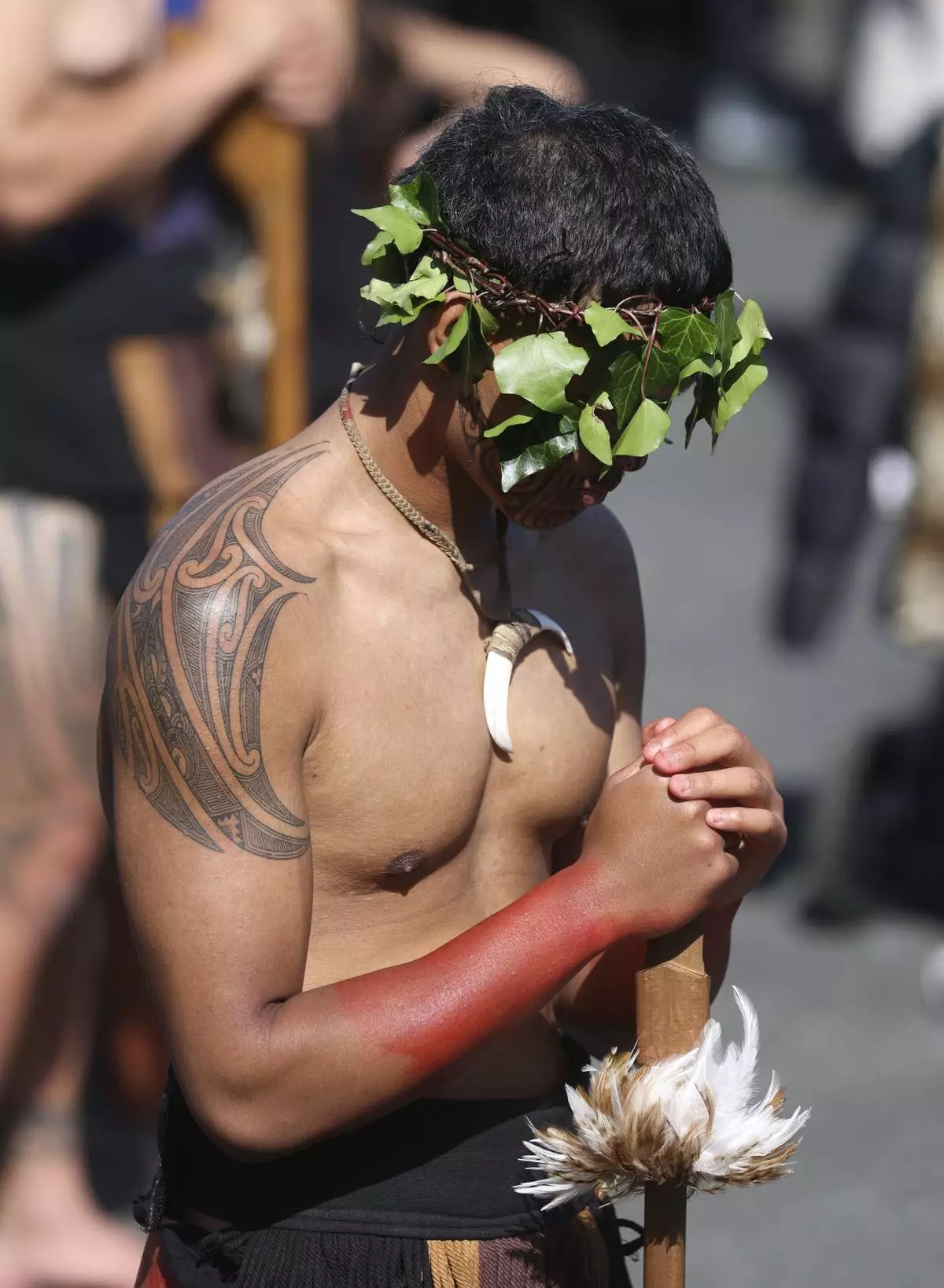
A warriors wait to receive the body of the Māori king, Kingi Tuheitia, next to the Waikato River where he will be carried up Taupiri Mountain for burial at Ngaruawahia, New Zealand, Thursday, Sept 6, 2024. (AP Photo/Alan Gibson)
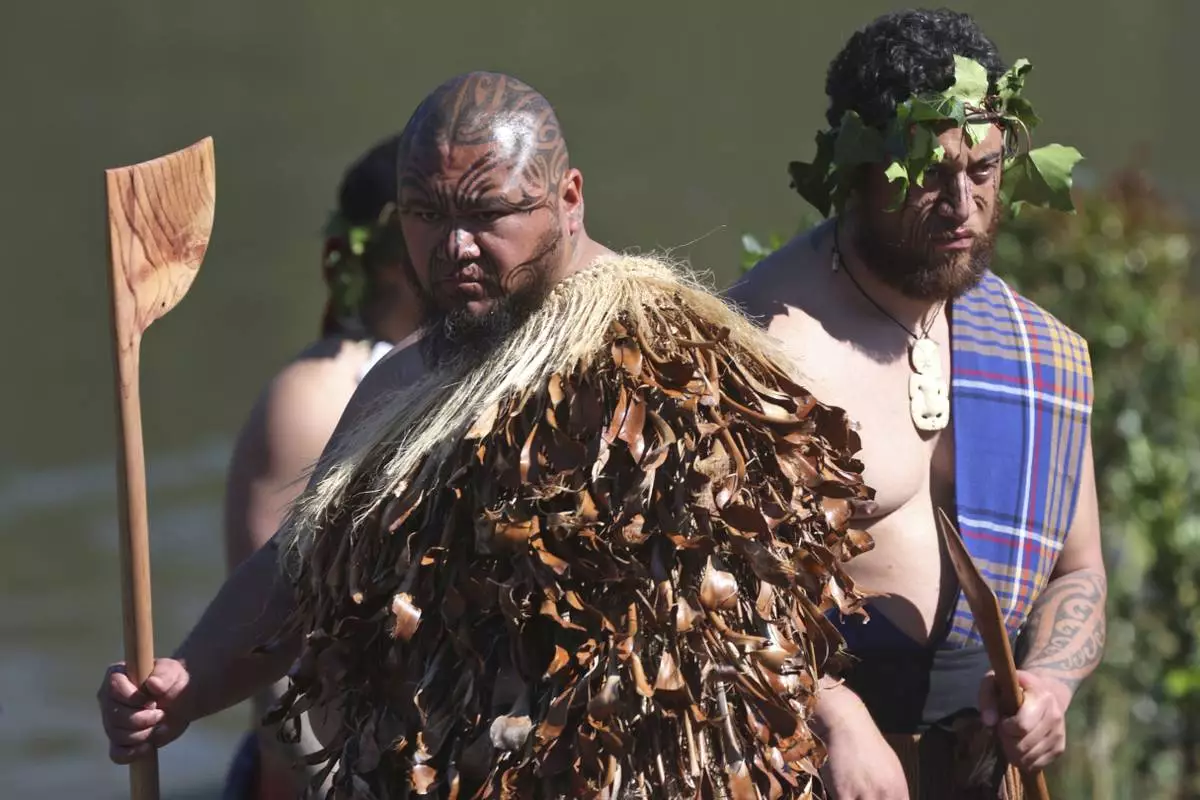
Warriors wait to receive the body of the Māori king, Kingi Tuheitia, next to the Waikato River where he will be carried up Taupiri Mountain for burial at Ngaruawahia, New Zealand, Thursday, Sept 6, 2024. (AP Photo/Alan Gibson)
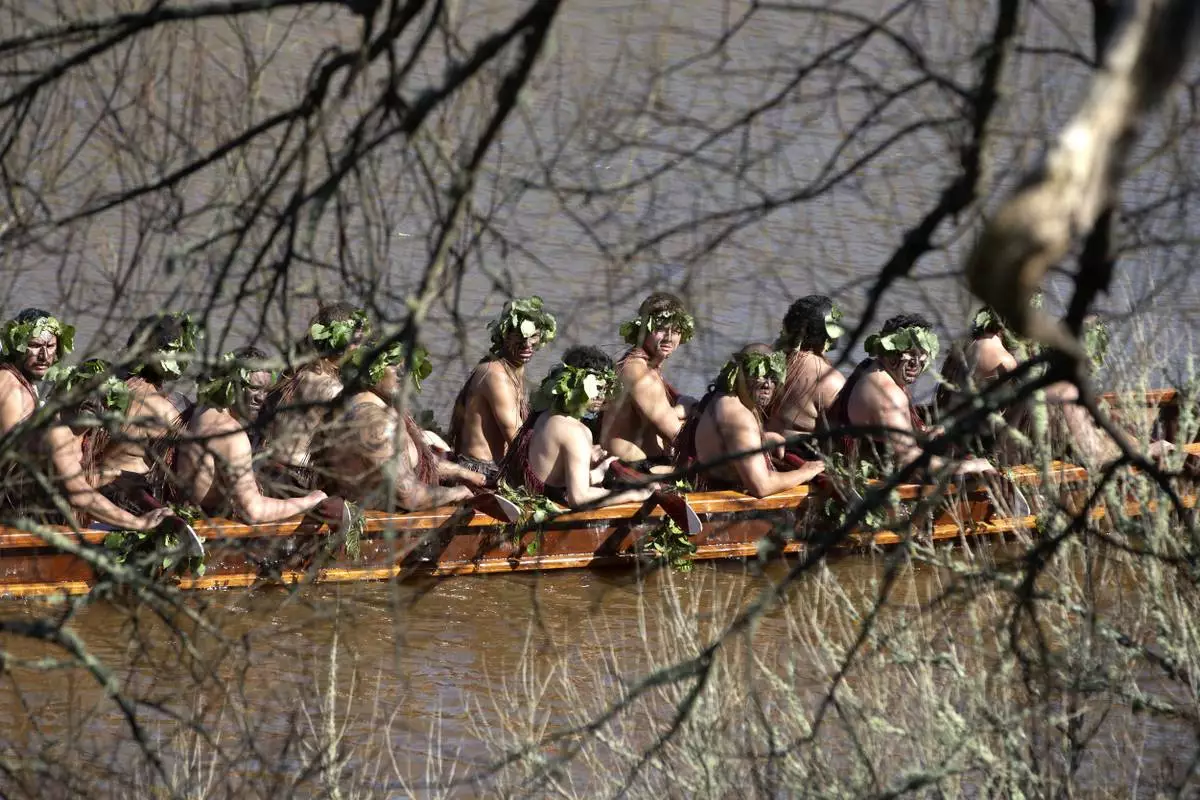
A waka, a traditional canoe, is paddled by warriors on the Waikato River as part of the funeral of New Zealand's Maori King, Kiingi Tuheitia Pootatau Te Wherowhero VII, in Ngaruawahia, New Zealand, Thursday, Sept. 5, 2024. (AP Photo/Alan Gibson)
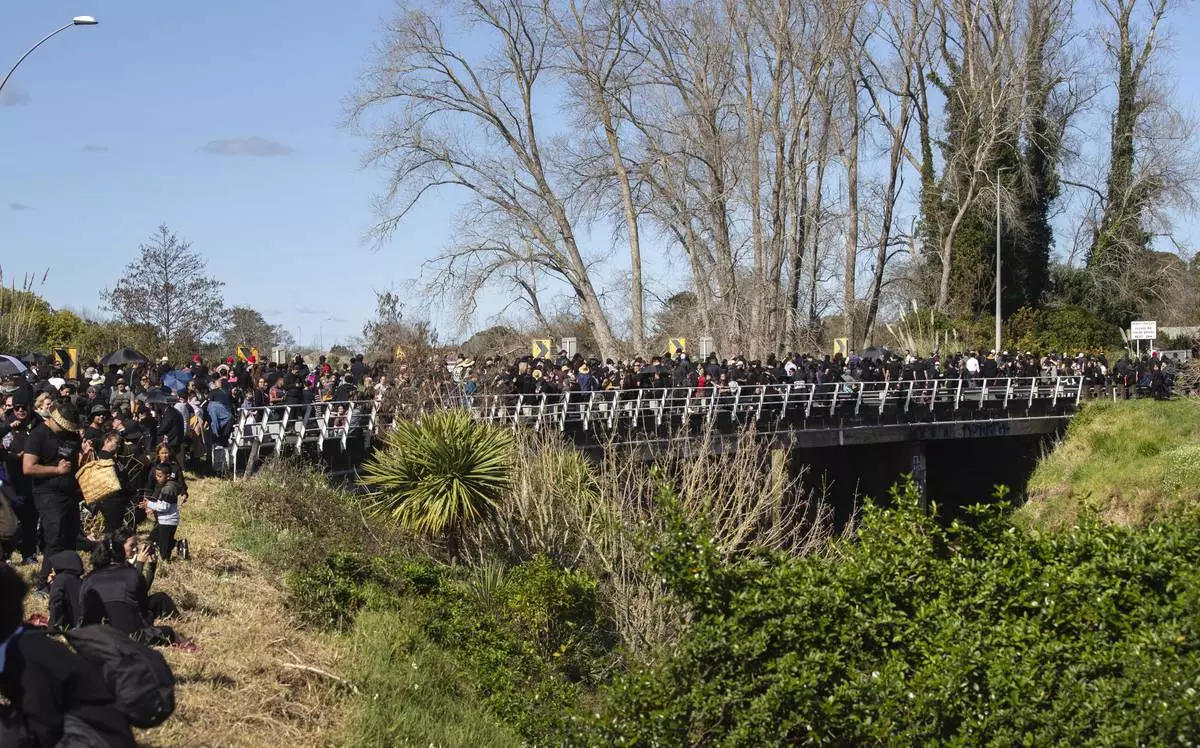
Mourners crowd the roads as the body of Maori king, Kingi Tuheitia, is carried up Taupiri Mountain for burial at Ngaruawahia, New Zealand, Thursday, Sept 6, 2024. (AP Photo/Alan Gibson)
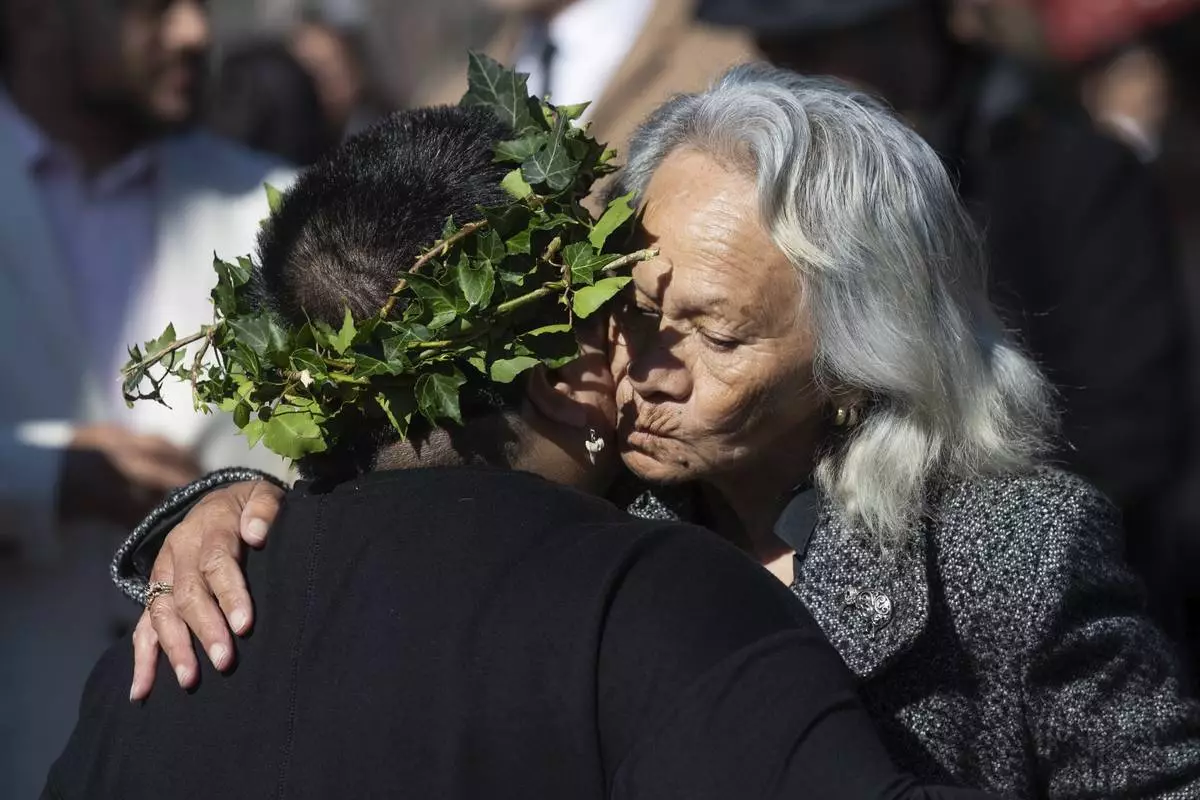
Mourners react outside Turangawaewae marae for the funeral of New Zealand's Māori King, Kiingi Tuheitia Pootatau Te Wherowhero VII, Thursday, Sept. 5, 2024, in Ngaruawahia, New Zealand. (AP Photo/Alan Gibson)
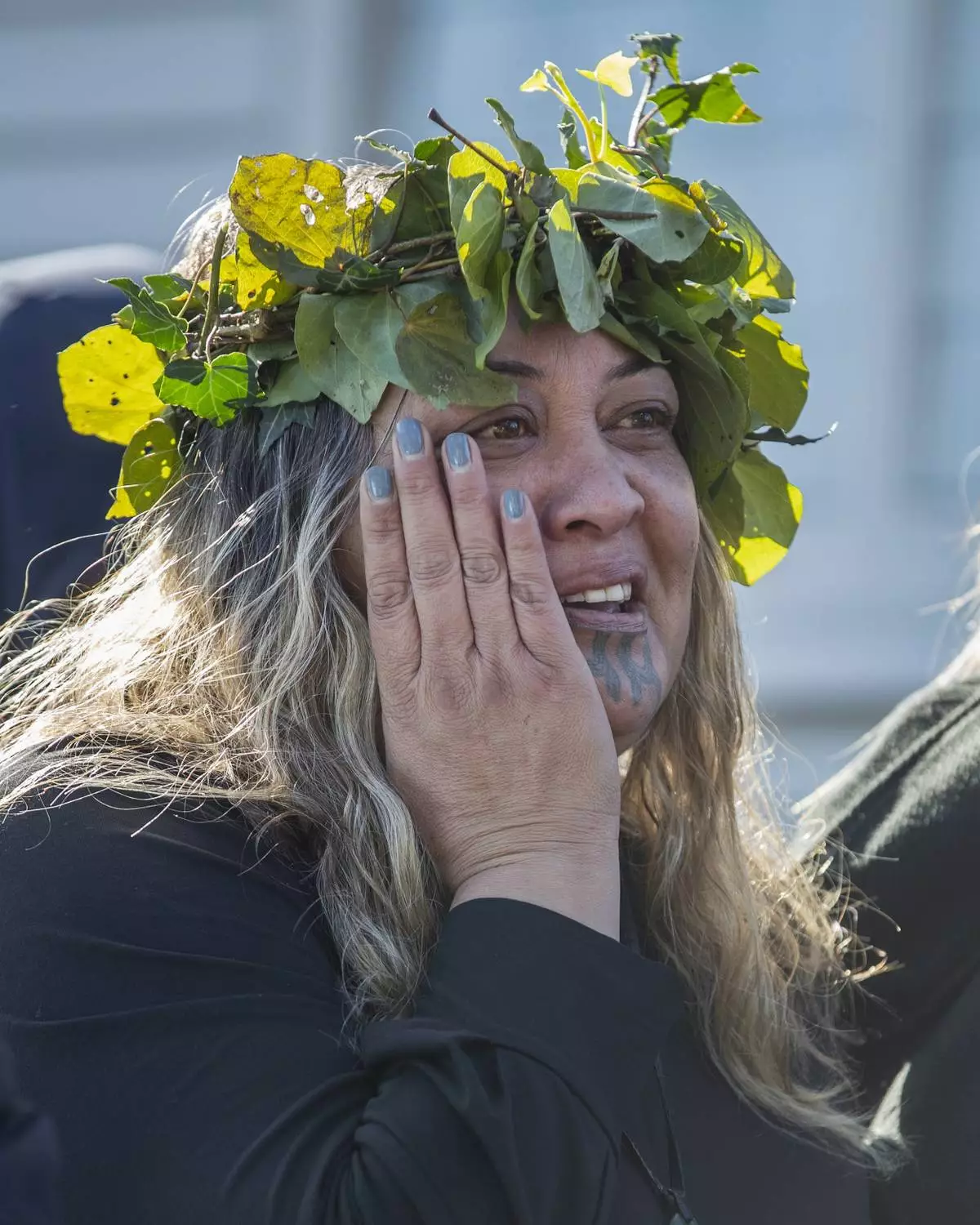
A mourner reacts outside Turangawaewae Marae for the funeral of New Zealand's Māori King, Kiingi Tuheitia Pootatau Te Wherowhero VII, in Ngaruawahia, New Zealand, Thursday, Sept 5, 2024. (AP Photo/Alan Gibson)
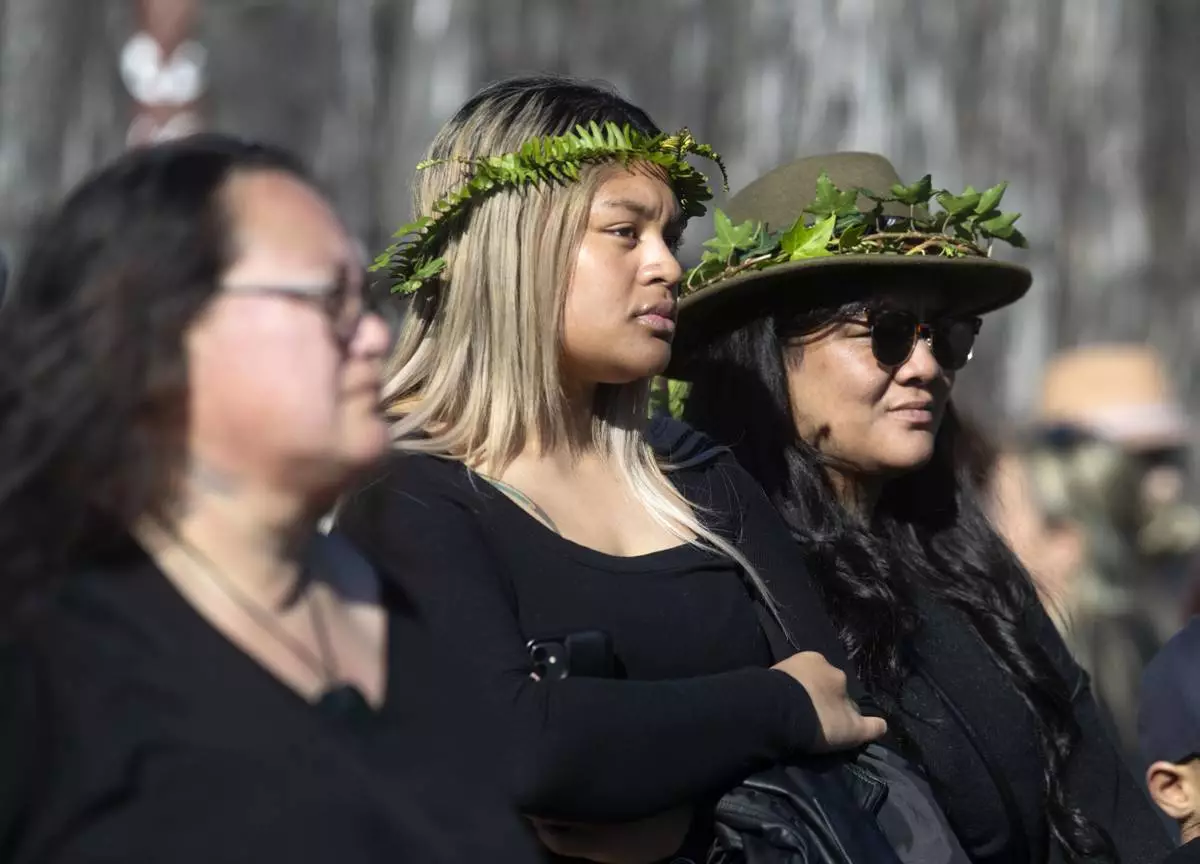
Mourners gather outside Turangawaewae Marae for the funeral of New Zealand's Māori King, Kiingi Tuheitia Pootatau Te Wherowhero VII, in Ngaruawahia, New Zealand, Thursday, Sept 5, 2024. (AP Photo/Alan Gibson)
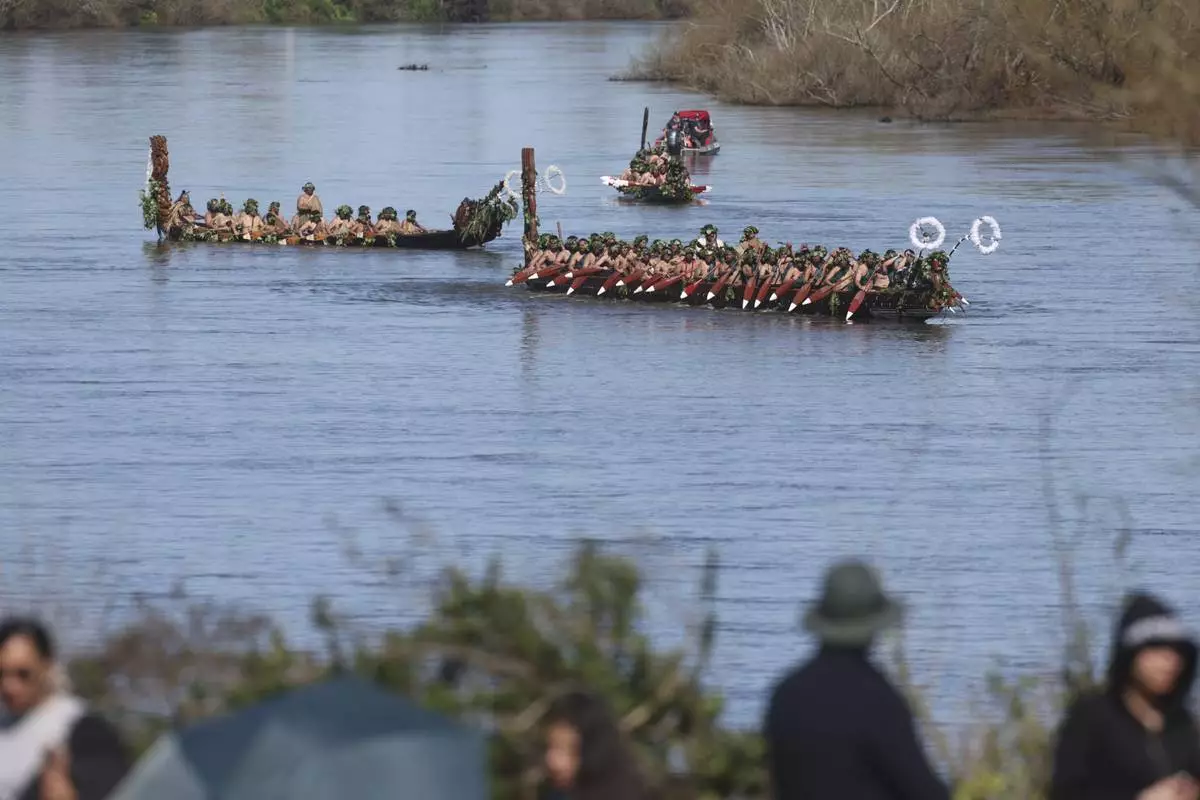
Wakas, a traditional canoe, are paddled by warriors as part of the funeral of New Zealand's Maori King, Kiingi Tuheitia Pootatau Te Wherowhero VII, in Ngaruawahia, New Zealand, Thursday, Sept. 5, 2024. (AP Photo/Alan Gibson)
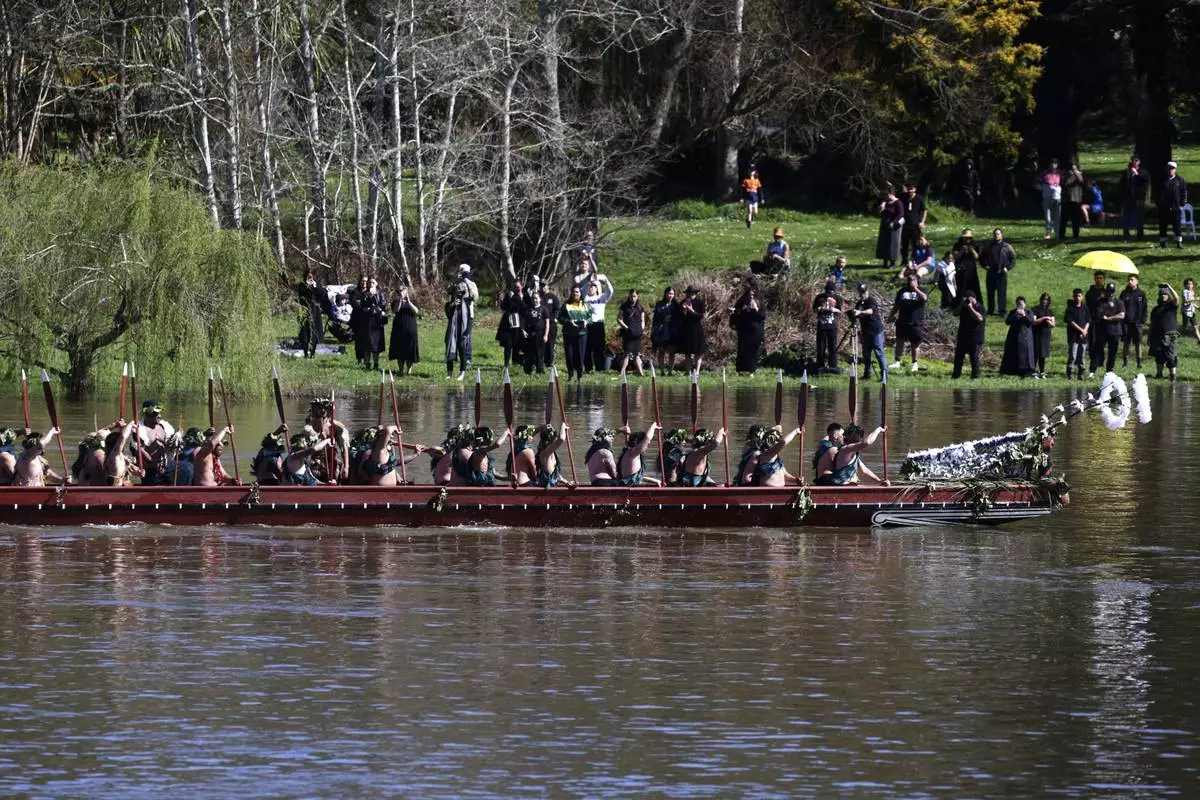
A waka, a traditional canoe, is paddled by warriors as part of the funeral of New Zealand's Maori King, Kiingi Tuheitia Pootatau Te Wherowhero VII, in Ngaruawahia, New Zealand, Thursday, Sept. 5, 2024. (AP Photo/Alan Gibson)
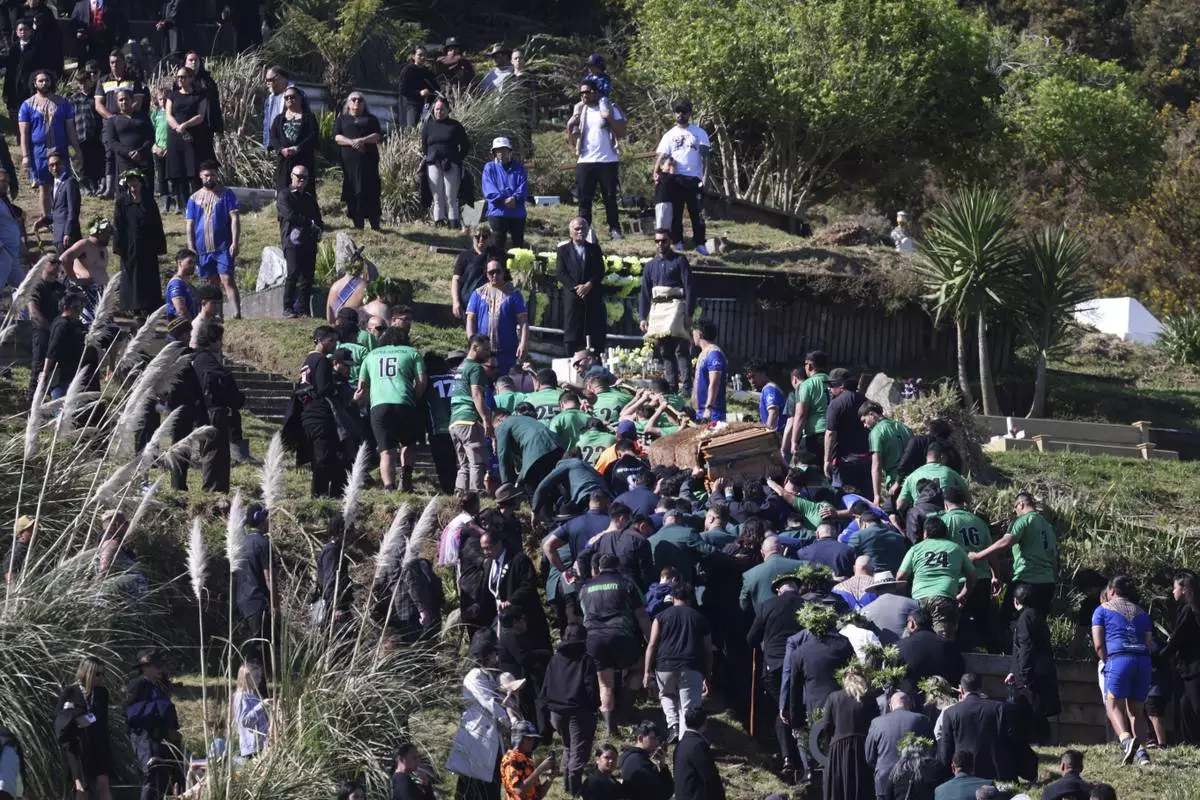
The coffin with the body of New Zealand's Maori King, Kiingi Tuheitia Pootatau Te Wherowhero VII, is carried up Taupiri Mountain for burial in Ngaruawahia, New Zealand, Thursday, Sept. 5, 2024. (AP Photo/Alan Gibson)
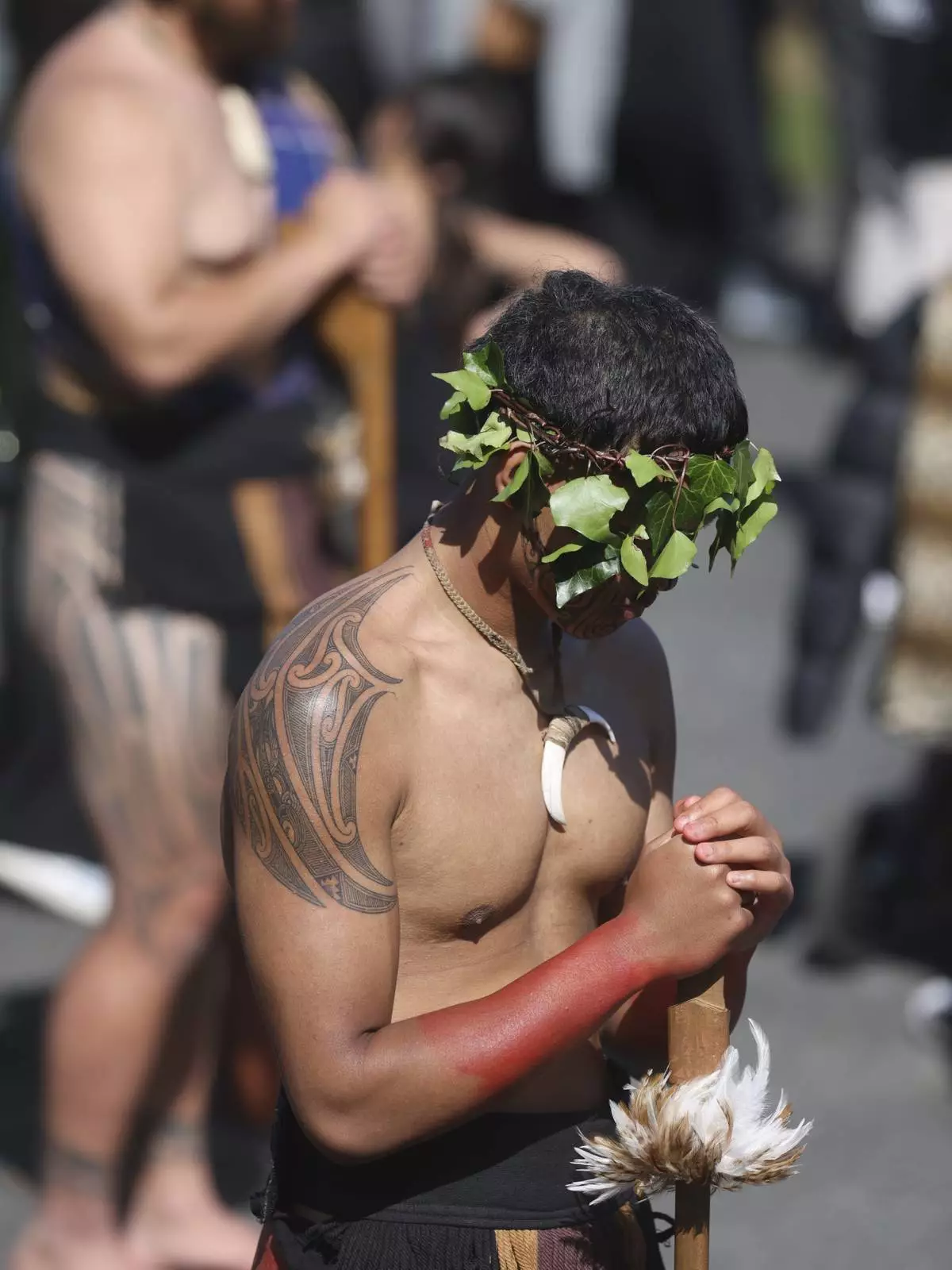
A warrior waits for the arrival of the coffin of New Zealand's Maori King, Kiingi Tuheitia Pootatau Te Wherowhero VII, before the burial in Ngaruawahia, New Zealand, Thursday, Sept. 5, 2024. (AP Photo/Alan Gibson)
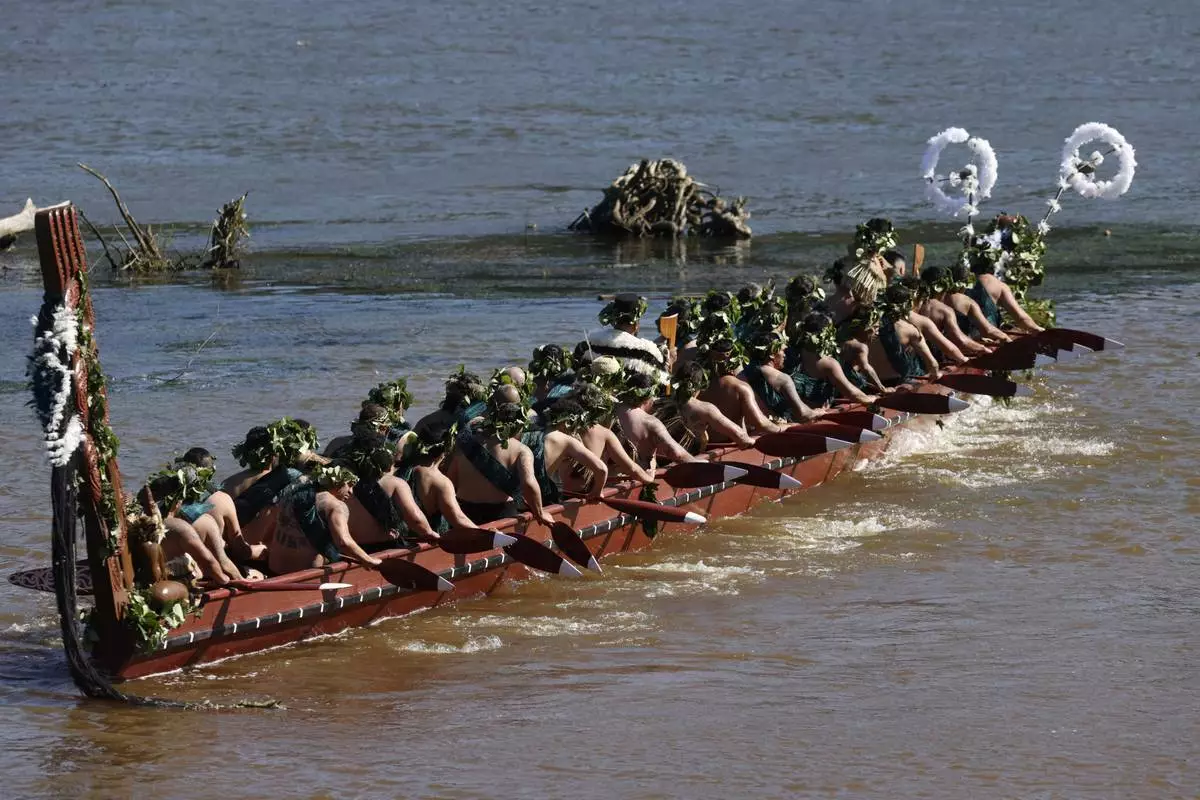
A waka, a traditional canoe, is paddled by warriors on the Waikato River as part of the funeral of New Zealand's Maori King, Kiingi Tuheitia Pootatau Te Wherowhero VII, in Ngaruawahia, New Zealand, Thursday, Sept. 5, 2024. (AP Photo/Alan Gibson)
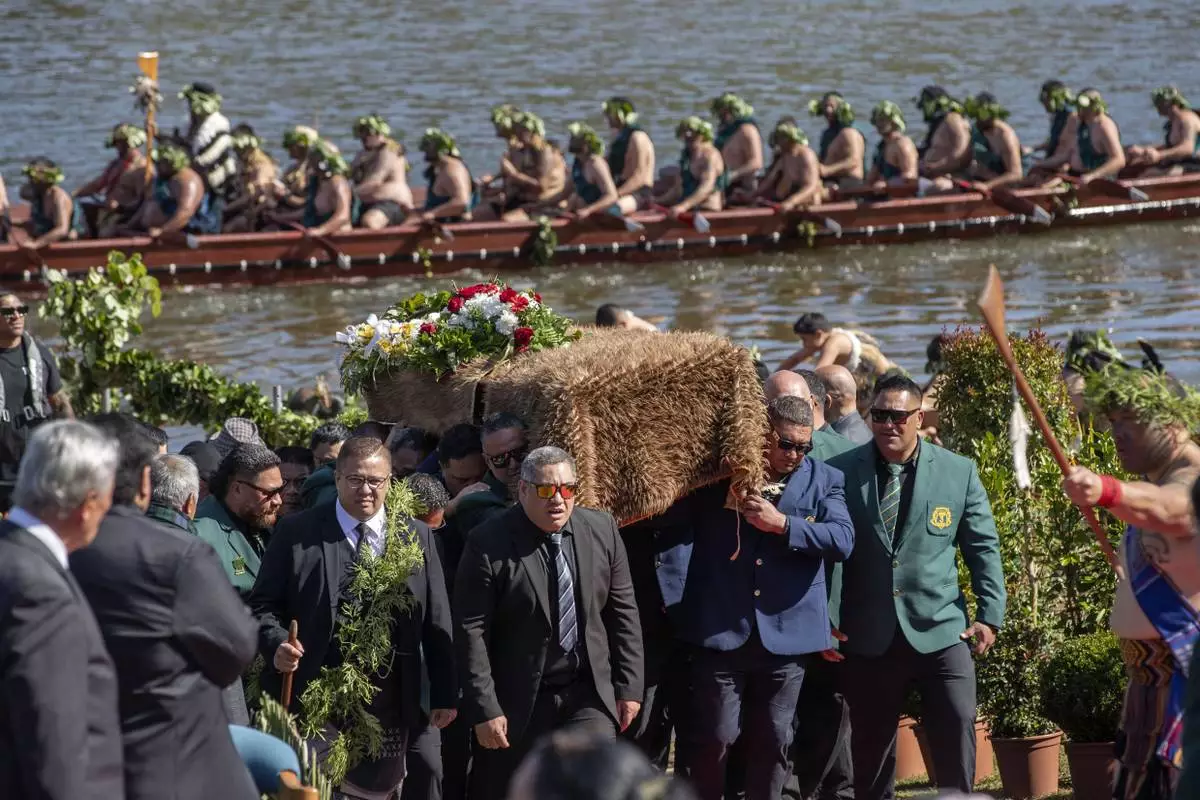
The coffin with the body of New Zealand's Maori King, Kiingi Tuheitia Pootatau Te Wherowhero VII, is carried after being transported on a waka (a traditional canoe) for burial in Ngaruawahia, New Zealand, Thursday, Sept. 5, 2024. (AP Photo/Alan Gibson)
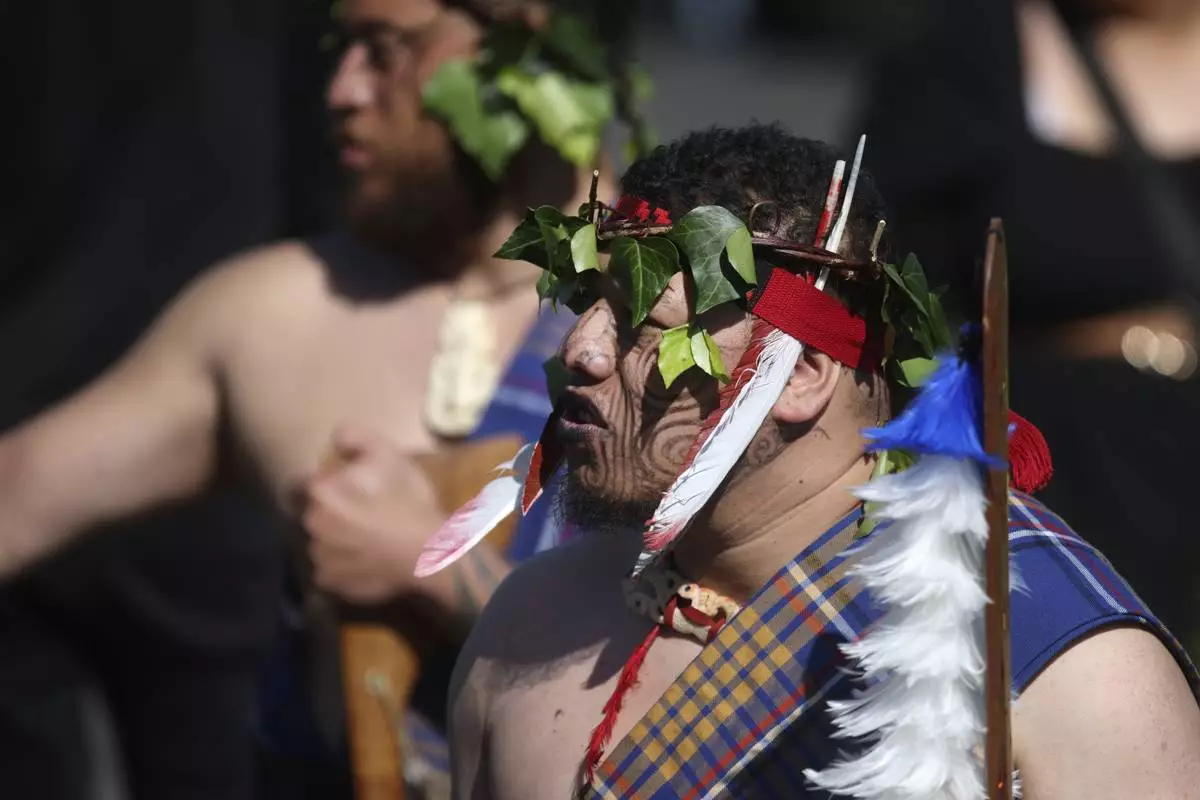
A warrior waits for the arrival of the coffin of New Zealand's Maori King, Kiingi Tuheitia Pootatau Te Wherowhero VII, before the burial in Ngaruawahia, New Zealand, Thursday, Sept. 5, 2024. (AP Photo/Alan Gibson)
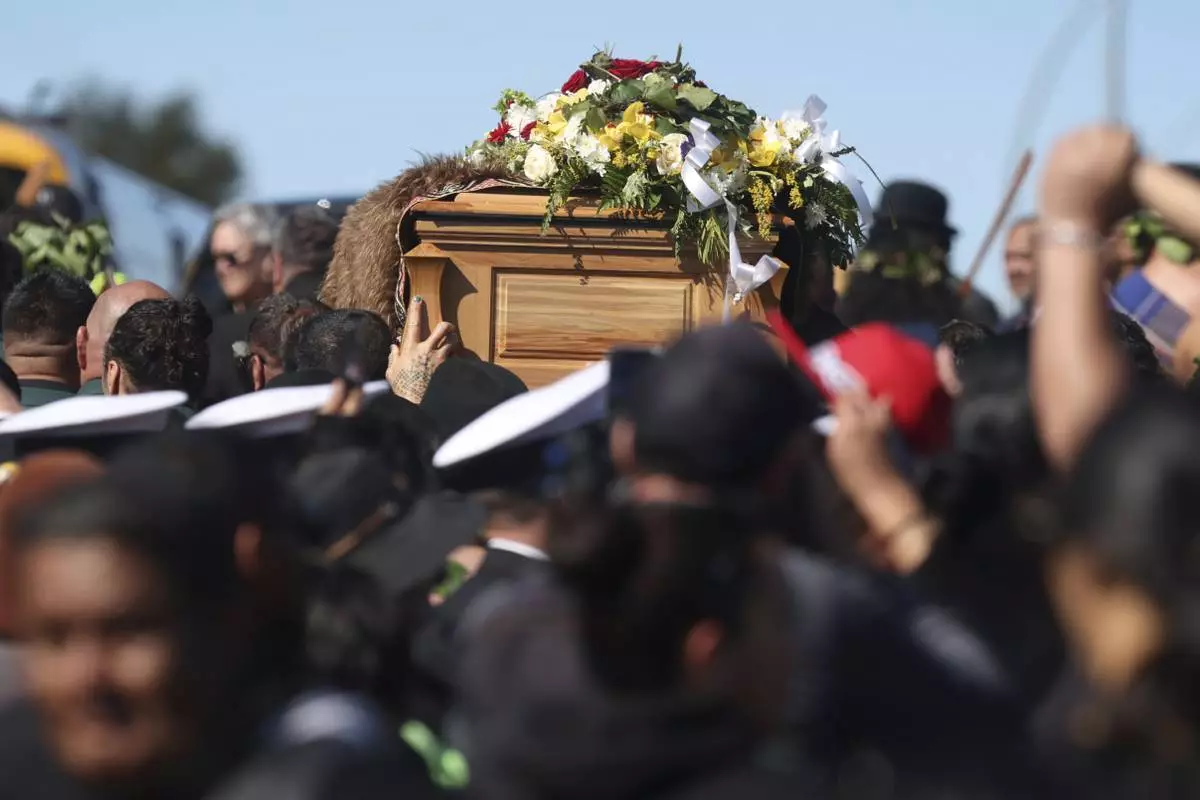
The coffin with the body of New Zealand's Maori King, Kiingi Tuheitia Pootatau Te Wherowhero VII, is carried up Taupiri Mountain for burial in Ngaruawahia, New Zealand, Thursday, Sept. 5, 2024. (AP Photo/Alan Gibson)
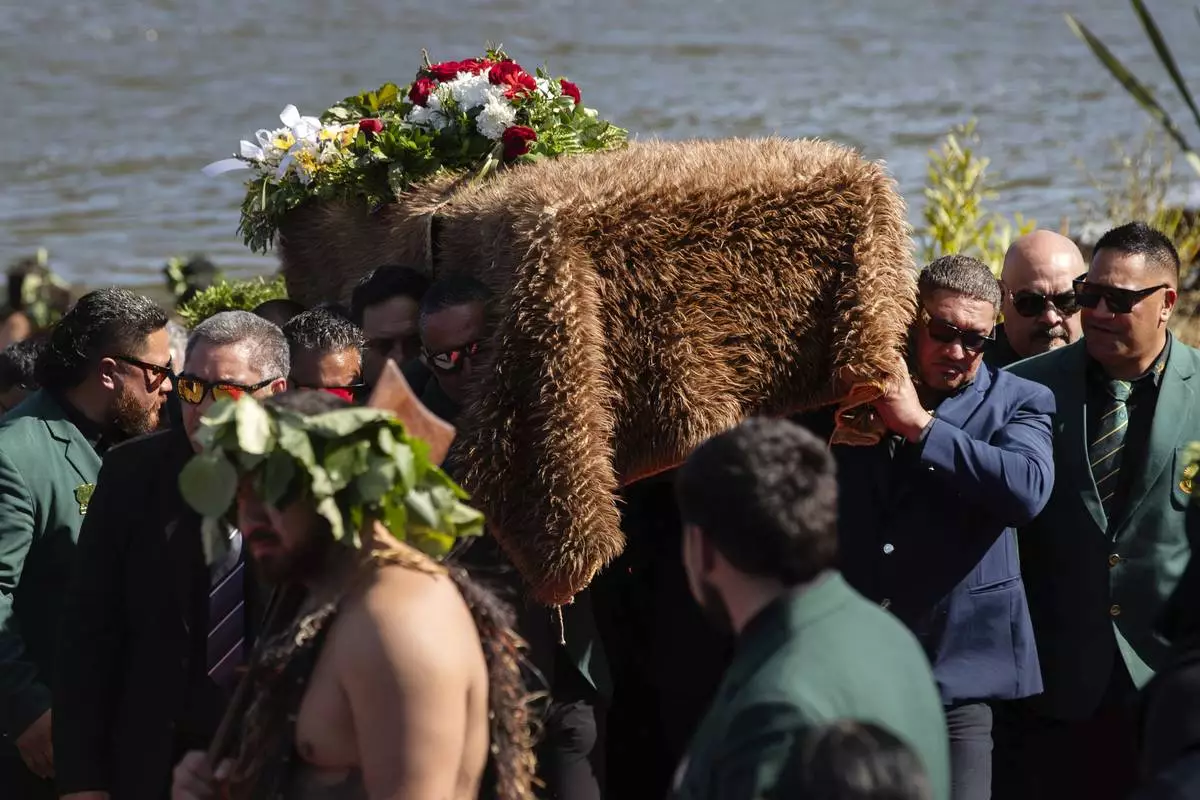
The coffin with the body of New Zealand's Maori King, Kiingi Tuheitia Pootatau Te Wherowhero VII, is carried up Taupiri Mountain for burial in Ngaruawahia, New Zealand, Thursday, Sept. 5, 2024. (AP Photo/Alan Gibson)
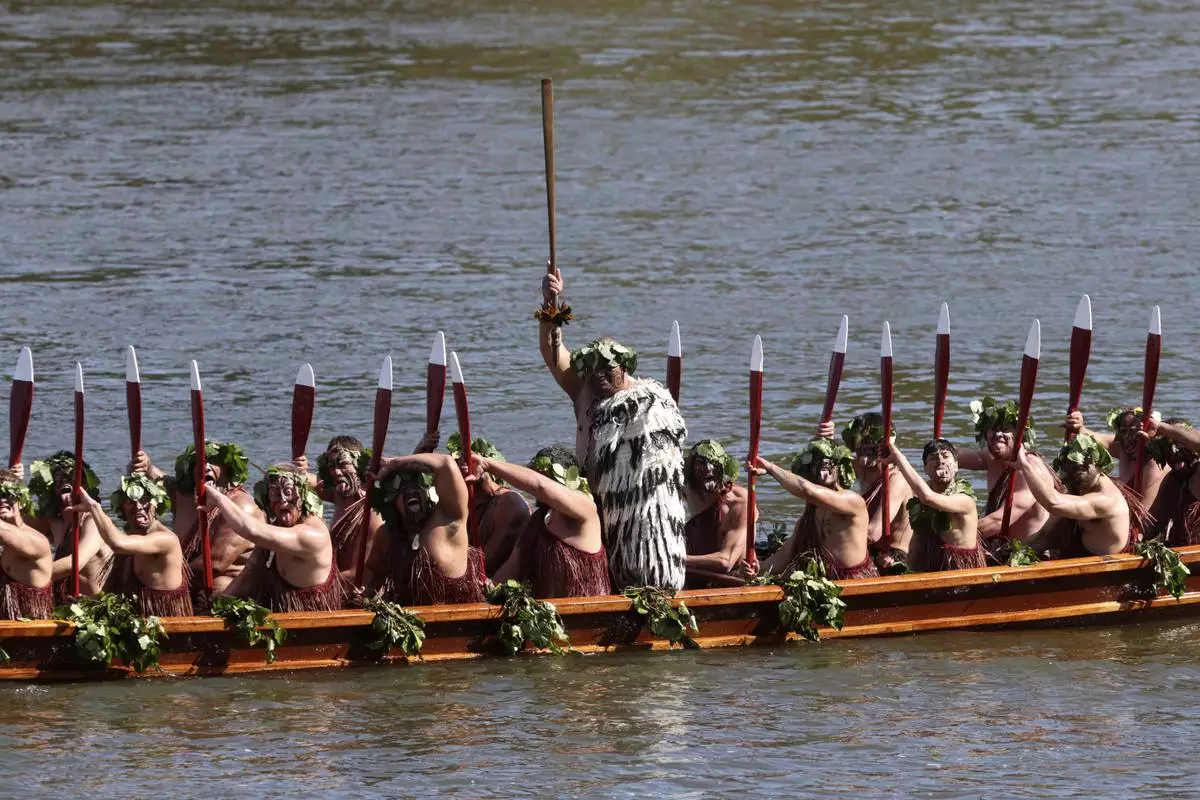
A waka, a traditional canoe, is paddled by warriors as part of the funeral of New Zealand's Maori King, Kiingi Tuheitia Pootatau Te Wherowhero VII, in Ngaruawahia, New Zealand, Thursday, Sept. 5, 2024. (AP Photo/Alan Gibson)
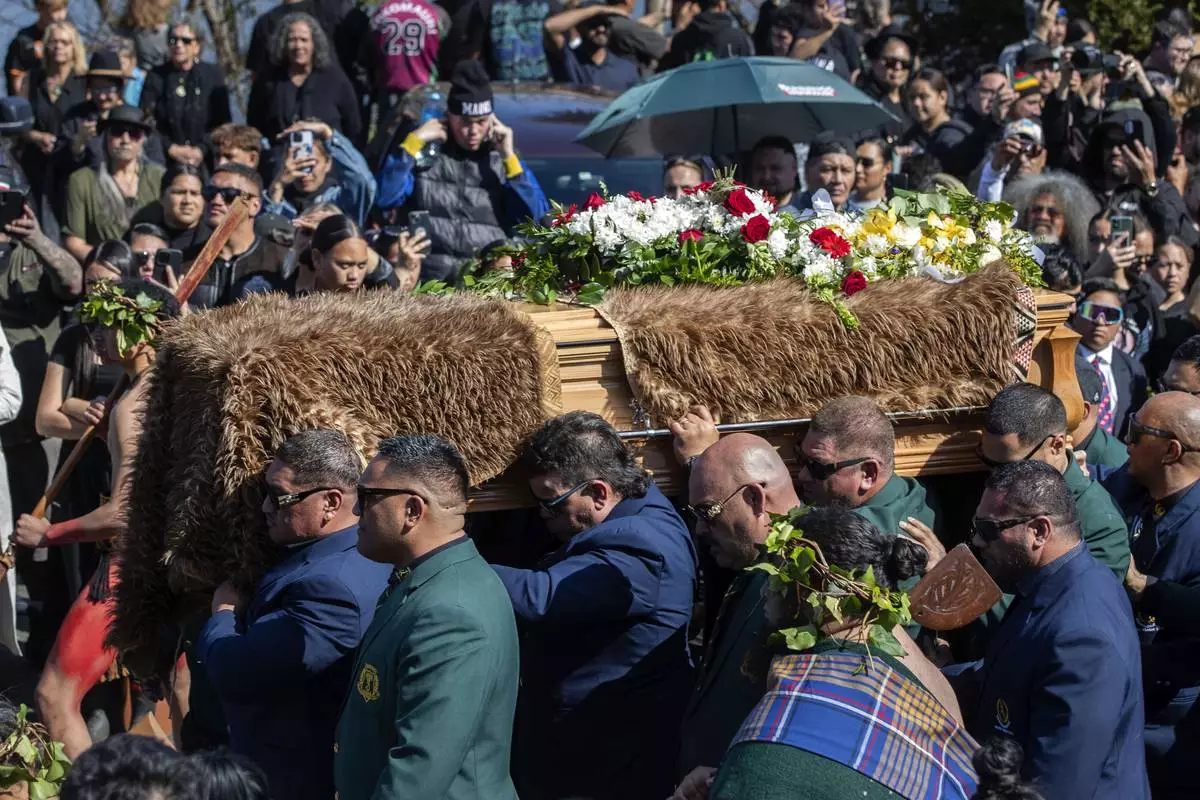
The coffin with the body of New Zealand's Maori King, Kiingi Tuheitia Pootatau Te Wherowhero VII, is carried up Taupiri Mountain for burial in Ngaruawahia, New Zealand, Thursday, Sept. 5, 2024. (AP Photo/Alan Gibson)




























